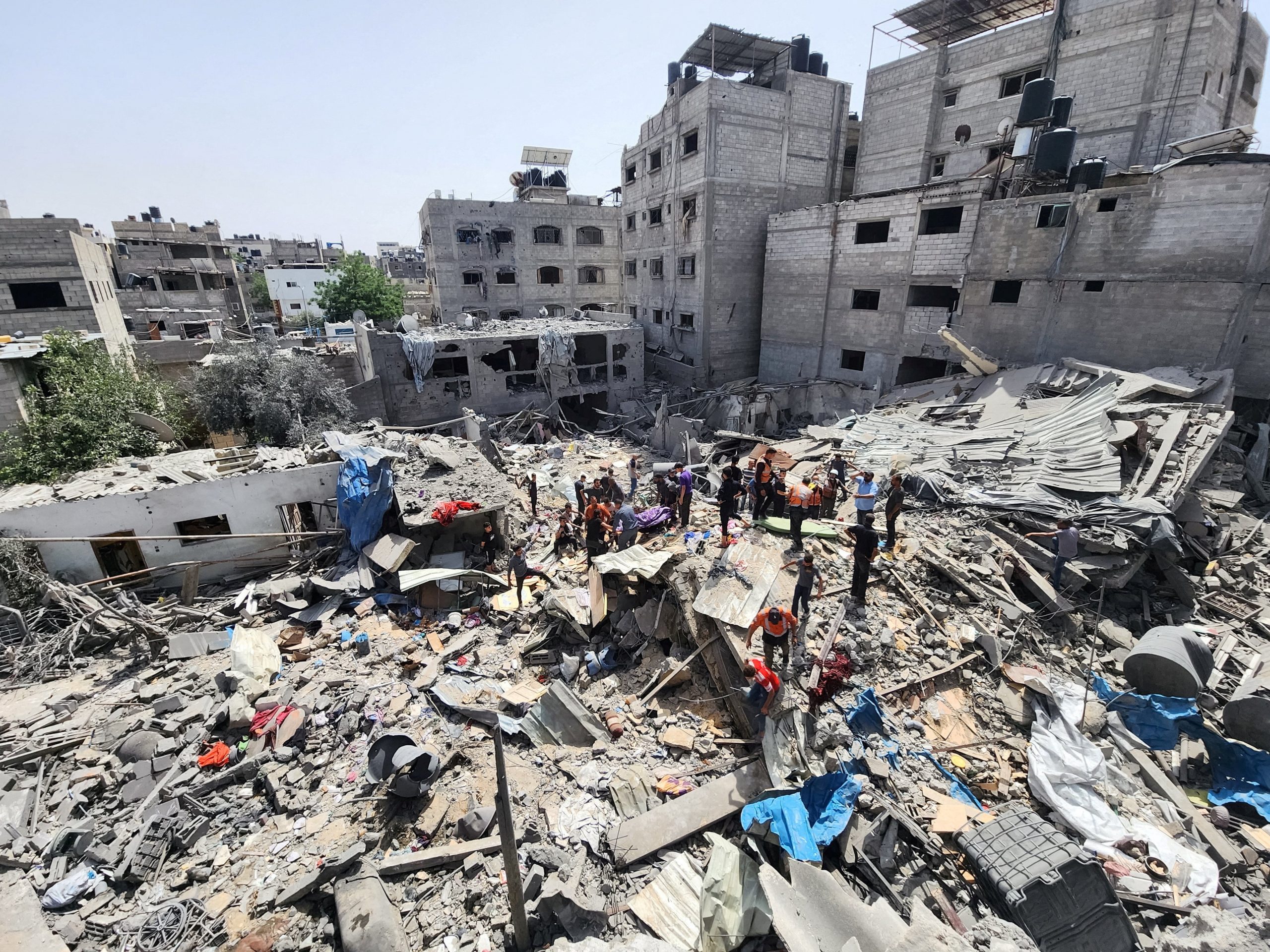Residents of the Gaza Strip said that Israeli planes and tanks hit different areas of the strip. On Sunday, White House national security adviser Jake Sullivan met with Israeli Prime Minister Benjamin Netanyahu to discuss calls for a more focused military operation.

The White House said before the talks that Sullivan would push for Israel to go after Hamas fighters in a specific way instead of attacking the whole city of Rafah in southern Gaza.
Israel has been moving into the city, which it says is one of Hamas’s last strongholds. They have left the area, which was one of their few surviving safe places, by the hundreds of thousands.
It is not safe anywhere in the Gaza Strip, Majid Omran told Reuters. He and his family had left Rafah and were now back in what was left of their home in the southern city of Khan Younis, where they had left it almost five months ago.
“We came here and lived on top of the rubble of our house with our kids, grandchildren, and daughters.” “Because there is nowhere to hide here,” Omran told Reuters while cooking over a fire in the destroyed house.
Israeli forces also moved deeper into the narrow streets of Jabalia in northern Gaza over the weekend and into Sunday. They went back to an area they said they had cleared earlier in the war, according to people who live there.
It is the biggest of Gaza’s eight historic refugee camps. The Israeli military has said that its operations in Jabalia are precise and are meant to stop Hamas from taking back control of the area.
Threats, talks, and caves
A source in Israel said before the talks on Sunday that Prime Minister Benjamin Netanyahu and his top advisors would try to come to a deal with Sullivan about the need to move forward with the Rafah push.
The source, who spoke to Reuters on the condition of anonymity, said that the fact that about half of the city’s Palestinians were evacuated in 12 days may have made the US feel better about Israel’s humanitarian efforts.
“We’ve shown that this is not only important, but also possible,” the source said.
Israel says its forces have found dozens of tunnels under Rafah that lead into Egypt, which has condemned the military sweep. The source said Israel would also talk about these concerns.
“These tunnels are used by Hamas to get weapons and ammunition, and they could also be used to smuggle out of Gaza hostages or senior Hamas members,” Deputy Israeli State Attorney Noam Gilad said at a hearing in The Hague on Friday. This was the first time that Egypt’s state information service had given more information about claims that they were false.
Netanyahu said that the operation in Rafah, where Israel thinks up to a quarter of Hamas’s fighting forces are hiding, could be over in a few weeks.
Washington is worried about the hundreds of thousands of homeless Palestinians who are staying there and has said that they need to be evacuated and given good new places to stay.
Gaza health officials and Hamas both said that at least 28 Palestinians were killed on Sunday. Most of them were killed in an attack on a house in Nuseirat, which is in the middle of the Gaza Strip.
In a statement, the Gaza Civil Emergency Service said that relief teams had found the bodies of 150 Palestinians who had been killed by the army in the past few days and that 300 homes had been hit by Israeli fire from the air and the ground.
Israeli officials say that 1,200 people died in the Oct. 7 attack by Hamas on Israel that started the war. About 125 of the 253 people who were taken hostage in the raid are still thought to be held captive in Gaza.
The health office of the enclave says that since October 7, Israeli attacks have killed at least 35,386 Palestinians. Aid groups have warned that there is a lot of hunger and a lack of power and medical supplies.
On Friday, the US military said that trucks had started bringing help ashore from a temporary pier that its troops had built. These trucks were the first to arrive by sea in weeks at the besieged area.
The armed group Popular Resistance Committee (PRC), which fights with Hamas in Gaza, said in a statement that the pier was built to ease political pressure on Israel and that any US or Israeli troops on its land would be seen as valid targets.
Friday, Hamas also said they were worried about the pier and said any foreign armed force in Gaza would be bad. But they didn’t make any direct threats.
When President Joe Biden announced in March that the US would be building a pier, he said, “No US boots will be on the ground.”










































